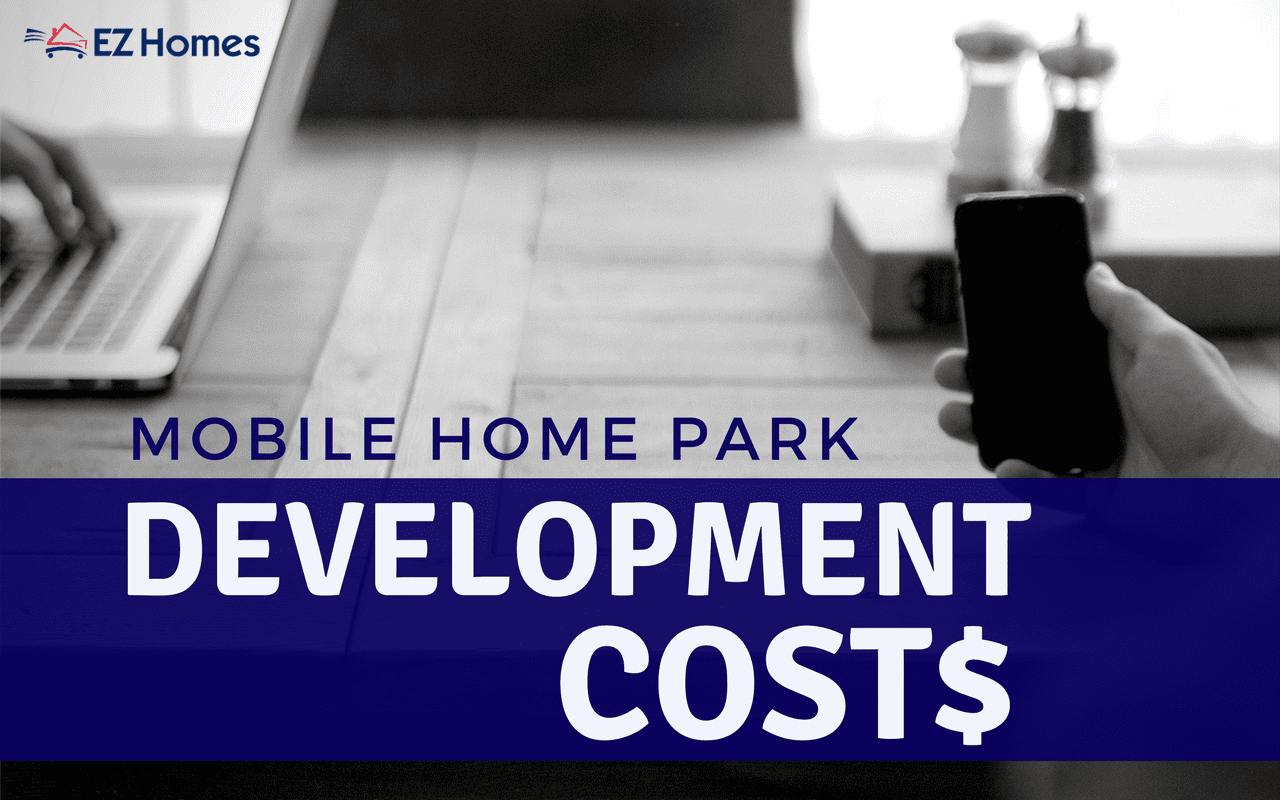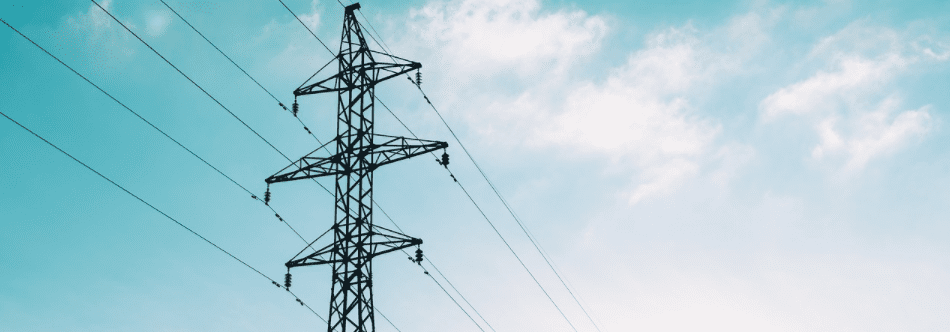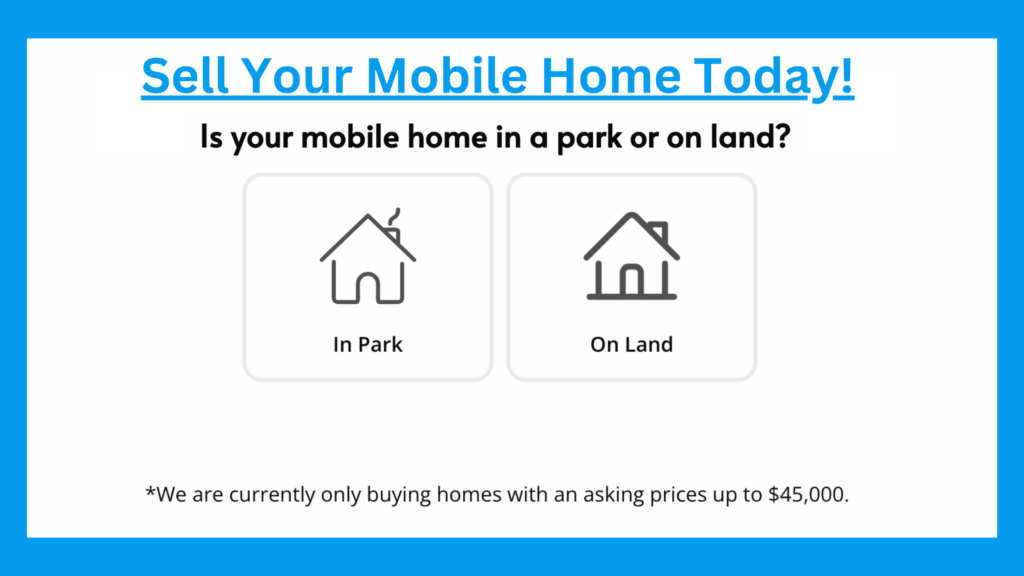We’ve been looking at the benefits of investing in mobile home parks and how to go about the process of buying one. But what mobile home park development costs do you need to plan for if you’re building on land? And how can you make sure you’re not throwing your money away? Well, here are a few tips to develop your mobile home park in a way that will save you the most money!

Building from the ground up
Raw land is ground that has not yet been utilized and has no buildings or public utilities set up already. Even though it’s true that there’s not enough supply to meet the demand for mobile home living, developing a mobile home park on raw land is nearly impossible. Not only is there a lack of prime real estate, but few cities include zoning for new mobile home parks.
But let’s say you have the perfect plot of land with the go-ahead to put in a mobile home park. Then you need to know how much it will cost to construct your park. We’ll warn you ahead of time, building a mobile home park from the ground up is a costly venture. You may actually end up spending more money than you make.
Licensing
Before you start building, go to your local planning department and figure out what kind of licensing you need to start your project. Ask for a breakdown of the fees you’ll need to pay the city, county, and other governing authorities to get approval for your park. Don’t forget to add these to your budget.
Design
Next, you’ll need to design your mobile home park. We suggest factoring in the cost of a civil engineer to help you create your blueprint. This can cost anywhere between $1,000 to $1,500 for each mobile home space.
Concrete pour cost
Pouring concrete depends on the type of soil your mobile home is being developed on. Some states that experience frozen soil will have different requirements than other states that experience earthquakes. This cost will be very specific to your location. The average cost of concrete ranges from $2.17 per every 2” concrete slab, $2.75 per square foot for material cost and $36 per hour for labor.
Utilities and other expenses
You’ll need to find out how much it will cost to bring utilities to your park. These would include water, electricity, gas, cable, phone lines, Internet, etc. Contact the various service providers to find out their fees and also the time it takes to get them installed. Some services won’t be available until other services are installed. Set up a schedule to plan the installations in the right order. This can save you time and money in the long run.

Don’t forget to include the cost of parking, handicap accessibility, hydrants, lighting and road plots. These costs will all vary depending on what is already in place and the state in which you live.
Ways to cut down on mobile home development costs
Now that we’ve looked at some of the costs you need to plan for, here are a few ways you can avoid unexpected expenses.These tips can also help offset your mobile home development costs.
Know your codes and avoid violation fees
It is very important to know exactly what you’re allowed to do, what you shouldn’t do, and what you’re required to do in order to operate. A few things to be informed about before developing your mobile home park are:
- required plans,
- general use regulations,
- site requirements,
- yard requirements,
- driveways,
- sanitation,
- service buildings,
- and landscaping.
City code enforcement officers will issue expensive tickets if you’re in violation of any codes at the time of their inspections. Different states have different regulations and requirements, so research all your local municipal codes. Invest your time now so that you do not waste funds on fines.
Just lease the lots
While it might seem logical to buy homes and have tenants rent from you, this could put a huge hole in your start-up capital. On average, the cost of buying a mobile home ranges between $37,000 and $75,000. The cost of moving a mobile home ranges between $1,000 and $3,000. You don’t want to run out of funds before you adequately develop your park and get through the first year or two of ironing out unforeseen problems. By letting mobile home owners rent space from you, you let them carry the responsibility for maintenance, moves, and updates.
Get financing for your mobile home park
You can acquire a loan for your mobile home park through a variety of financing options. Some of these options are conduit mobile home park loans, bank series multifamily loans, manufactured community housing loans and HUD FHA mobile home park loans. It will be easier for you to get a loan if your mobile home park is already at least 75% occupied. You are more likely to receive a loan from a local bank over larger national institutions.
Get the right tenants and ask the right rent

Your ideal tenants are people who own single or double wide mobile homes that are less than 10 years old. Though it depends on what the market looks like, plan on charging tenants between $200 – $450 plus the price of utilities every month. Finally, consider designing a “niche” park. You can learn more by following our series: Mobile Home Park Ideas.
What if developing on raw land is too costly?
If you do the math and decide that developing on raw land is not a good idea, you can still invest in a mobile home park! Read this guide for more information on how to start a mobile home park.



